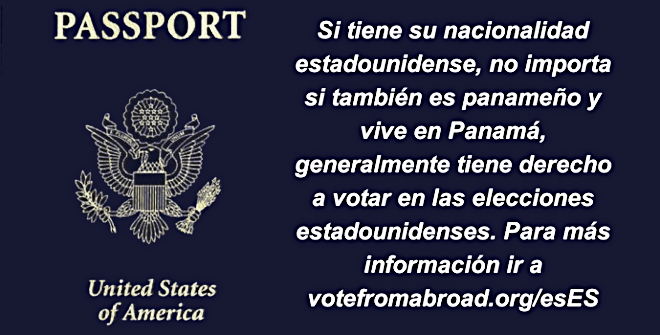Kamala Harris has lent a hand in raising stepchildren, and despite the pressures of her professional career, cared for an elderly parent. To the MAGA “Christian” ultra-right, that’s shirking her responsibilities as a woman, which they center on bearing children. Family values mean something much different to the Democratic nominee for president. Ubiquitous uncredited online photo, said to be a nurse making a home visit.
Harris’s Medicare at home plan: a step forward, but we need a care revolution
by Neal K. Shah – Common Dreams
Vice President Kamala Harris’s recently announced “Medicare at Home” plan represents a crucial acknowledgment of America’s caregiving crisis. However, it’s a band-aid on a gaping wound—a wound that exposes the deep-seated inequities and systemic failures in our approach to elder care and support for family caregivers. I believe with some thoughtful adjustments, the proposal can lead to a more equitable elder care system in America.
The numbers are staggering: 53 million Americans provide unpaid care for aging or disabled loved ones, sacrificing their own financial security and well-being. By 2030, all Baby Boomers will be over 65, comprising 21% of our population. This demographic shift demands not just incremental change, but a radical reimagining of how we value and support care work in our society.
Harris’ plan, while well-intentioned, risks perpetuating a broken care system that exploits caregivers—predominantly women and people of color—while failing to meet the diverse needs of families. By focusing on paying for “designated” Medicare aides, the current proposal supports only the high-cost portion of the market: the traditional for-profit home care agencies.
The Democratic presidential candidate’s new proposal highlights urgent needs, but true reform requires addressing systemic inequities and empowering diverse caregivers. The current system is a microcosm of larger societal inequities.
That leaves behind many other care options that are vital to addressing our urgent care crisis. It ignores the reality that 78% of adults requiring long-term care solely rely on family and friends for support. And of those who can afford to pay for help, nearly a third rely on the “gray market” of informal caregivers. These groups—family caregivers and informal non-professional caregivers – should also be covered if Medicare were to pay for home-based care. Otherwise, the Harris proposal is favoring a for-profit home care agency system, at the expense of more affordable options, that the majority of people rely on.
Beyond affordability, many people actually prefer to not deal with the for-profit care market. One NIH-funded study on home care needs revealed a stark truth: patients value vouchers to pay for family and informal caregivers 50% more than agency-provided aides. This preference isn’t just about familiarity. It’s about dignity, cultural competence, and the recognition that care is deeply personal.
The current system is a microcosm of larger societal inequities. Unpaid family caregivers—mostly women, and disproportionately women of color—lose an average of $304,000 in wages and benefits over their lifetime. This is a form of structural inequality that perpetuates gender and racial wealth gaps.
To truly revolutionize home care, we must embrace a progressive vision that centers on equity, worker empowerment, and community-based solutions. Here’s what that could look like:
1. A Universal Caregiver Benefit: Instead of means-tested programs, we need a universal benefit that recognizes caregiving as valuable work, regardless of who performs it. This would include payment to family members, friends, and community members, not just professional Medicare-designated aides. Such an approach would bring this existing “gray market” of family and informal caregivers into a more regulated and supported economy.
2. Technology for Social Impact: To truly transform home care, we must embrace innovation and flexibility. We can leverage technology platforms to create a more dynamic, responsive caregiver workforce. This can create flexible, well-compensated opportunities that benefit both caregivers and lower the costs for care recipients.
3. Community Care Cooperatives: Encourage the formation of worker-owned care cooperatives, empowering caregivers and ensuring that the benefits of their labor stay within their communities.
4. Comprehensive Training and Support: Provide accessible, culturally competent training for all types of caregivers, recognizing the diverse needs of care recipients and the varied skills of potential caregivers.
5. Intersectional Policy Approach: Recognize that caregiving intersects with issues of gender equality, racial justice, immigrant rights, and economic justice. Our solutions must address all these facets.
Critics may argue that this approach could compromise care quality. However, with proper oversight and community-based accountability mechanisms, we can create a system that’s more responsive, more equitable, and more aligned with the values of dignity and self-determination.
The economic impact of this revolution would be profound. By recognizing and compensating currently unpaid care work, we could stimulate local economies, reduce gender and racial wealth gaps, and create a more robust social safety net for all.
We can create a level playing field where all care providers—from traditional care agencies to tech platforms to family caregivers and informal caregivers—can thrive while prioritizing the needs of care recipients and care workers.
Harris’s Medicare at Home plan opens the door to a necessary conversation. Now, we must push it wide open and envision a care system that truly serves all Americans.
Harris’s Medicare at Home plan opens the door to a necessary conversation. Now, we must push it wide open and envision a care system that truly serves all Americans. We can build a society that recognizes the value of care work in all its forms.
As we debate this plan, let’s not lose sight of the broader struggle for social and economic justice. Reimagining home care for the 21st century is part of a larger project of creating an economy that works for all, not just the privileged few.
It’s time for a care revolution that puts people over profit, community over corporations, and equity at the center of our policies. Harris has taken the first step—now let’s march forward towards a truly just and compassionate care system for all Americans.
Contact us by email at thepanamanews@gmail.com
To fend off hackers, organized trolls and other online vandalism, our website comments feature is switched off. Instead, come to our Facebook page to join in the discussion.
These links are interactive — click on the boxes













